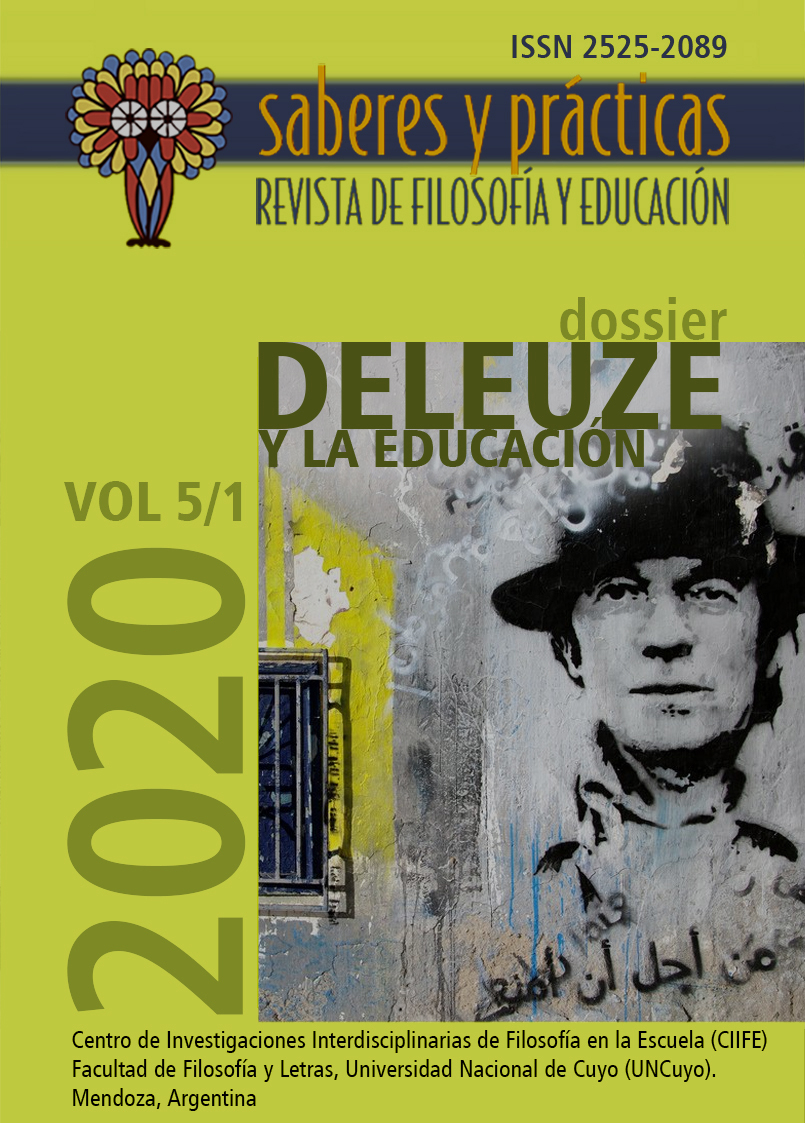Teaching and learning in times of pandemic: present and horizons
Keywords:
Didactic creation, Virtuality, Gamification, Diversity and InclusionAbstract
The following essay presents a critical reflection about the place of technologies in teaching and learning practices in the context of COVID-19. It involves a personal and interpretive approach, not exhaustive, that addresses how institutions, educational practices and teachers have been challenged in this complex and highly uncertain context. It recovers some visions that have been circulating through the networks of critical thinkers of recognized trajectory to help us reflect on this exceptional context. It proposes some horizons of possibility that may offer clues for the critical revision of teaching; of the place of technologies and the construction of knowledge in contemporary digital settings. It raises tensions, questions and some certainties to imagine some didactic transformations for the coming years that imply conditions of inclusion in all expressions (political, cultural, epistemological, cognitive, emotional).
Downloads
References
Baricco, A. (2019). The Game. Anagrama.
Berardi, F. (2020). "Crónica de la psicodeflación" en Pensamiento contemporáneo en tiempos de pandemia, bajo licencia de Creative Commons, disponible en url: https://www.concierto.cl/2020/04/sopa-de-wuhan-el-libro-que-reflexiona-sobre-la-pandemia-del-covid-19/
Bruner J. (1997). La educación: puerta de la cultura. Visor
Butler, J. (2020) "El capitalismo tiene sus límites" en Pensamiento contemporáneo en tiempos de pandemia, bajo licencia de Creative Commons, disponible en url: https://www.concierto.cl/2020/04/sopa-de-wuhan-el-libro-que-reflexiona-sobre-la-pandemia-del-covid-19/
Burbules, N. (1999). El diálogo en la enseñanza. Teoría y práctica. Amorrortu.
Eisner, E. (1998). Cognición y curriculum. Amorrortu.
Harvey, D. (2020)- "Política anticapitalista en tiempos de coronavirus" en Pensamiento contemporáneo en tiempos de pandemia, bajo licencia de Creative Commons, disponible en url: https://www.concierto.cl/2020/04/sopa-de-wuhan-el-libro-que-reflexiona-sobre-la-pandemia-del-covid-19/
Lévy, P. (2004). Inteligencia colectiva: por una antropología del ciberespacio. Washington D.C.: Organización Panamericana de la Salud. Versión original: Lévy, P. (1990) Les Technologies de l'intelligence; l'Avenir de la pensée à l'ère informatique. La Découverte.
Lion, C. y Perosi, V. (comp.) (2019). Didácticas Lúdicas con videojuegos educativos. Escenarios y horizontes alternativos para enseñar y aprender. Novedades Educativas.
Lion, C. (2018). "Videojuegos: un prisma para comprender los escenarios culturales contemporáneos" en Revista Novedades Educativas, Nro 336-337, , diciembre-enero, pág 36-42.
Lion, C. (2017). "Tecnologías y aprendizaje: claves para repensar la escuela" en Montes, N. (Comp.) Educación y TIC. De las políticas a las aulas. Editorial EUDEBA.
Maggio, M. (2018). Reinventar la clase en la universidad. Buenos Aires: Paidós.
Rheingold, H. (2004). Multitudes inteligentes. La próxima revolución social. Barcelona: Gedisa.
Sassen, S. (2015). Expulsiones. Brutalidad y complejidad en la economía global. Katz Editores.
Wenger, E.; White, N. y Smith, J.D. (2009). Digital hábitats: stewarding technology for communities. Portland, OR: CPSquare.
Williamson, B. (2018). Big data en Educación. El futuro digital del aprendizaje, la política y la práctica. Morata.
Published
How to Cite
Issue
Section
License

This work is licensed under a Creative Commons Attribution-NonCommercial-ShareAlike 2.5 Argentina License.









